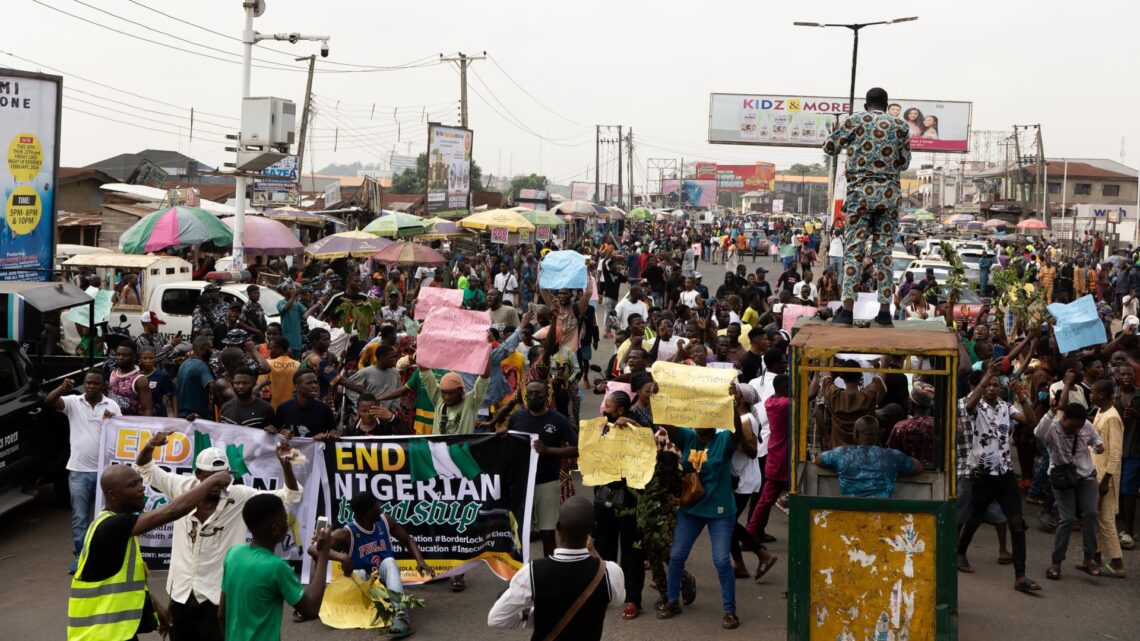IBADAN, Nigeria – Feb. 19, 2024: Demonstrators are seen at a protest against the hike in price and hard living conditions in Ibadan on February 19, 2024.
Samuel Alabi | Afp | Getty Images
With annual inflation nearing 30% and a currency in freefall, Nigeria is facing one of its worst economic crises in years, provoking nationwide outrage and protests.
The Nigerian naira hit a new all-time low against the U.S. dollar on both the official and parallel foreign exchange markets on Monday, sliding to almost 1,600 against the greenback on the official market from around 900 at the start of the year.
President Bola Tinubu announced Tuesday that the federal government plans to raise at least $10 billion to boost foreign exchange liquidity and stabilize the naira, according to multiple local media reports.
The currency is down around 70% since May 2023 when Tinubu took office, inheriting a struggling economy and promising a raft of reforms aimed at steadying the ship.
In a bid to fix the beleaguered economy and attract international investment, Tinubu unified Nigeria’s multiple exchange rates and enabled market forces to set the exchange rate, sending the currency plunging. In January, the market regulator also changed how it calculates the currency’s closing rate, resulting in another de facto devaluation.
Years of foreign exchange controls have also generated enormous pent-up demand for U.S. dollars at a time when overseas investment and crude oil exports have declined.
IBADAN, Nigeria – Feb. 19, 2024: Demonstrators hold placards during a protest against the hike in price and hard living conditions in Ibadan on February 19, 2024.
Samuel Alabi | Afp | Getty Images
“The weakened exchange rate should increase imported inflation, which will exacerbate price pressures in Nigeria,” Pieter Scribante, senior political economist at Oxford Economics, said in a note Friday.
The country is Africa’s largest economy and has a population of more than 210 million people, but relies heavily on…
Read the full article here








